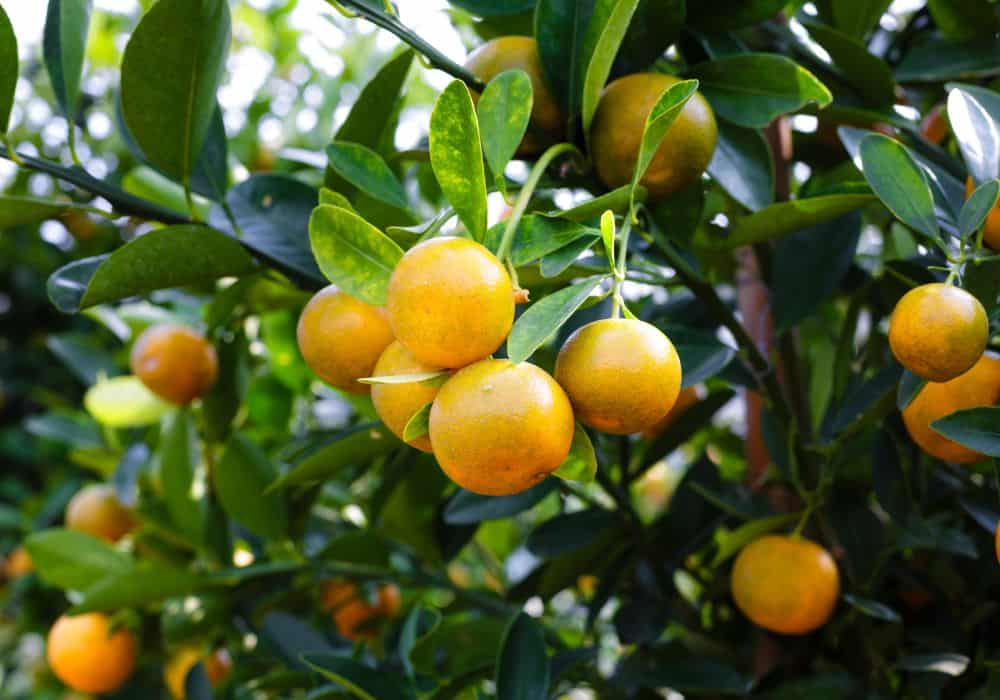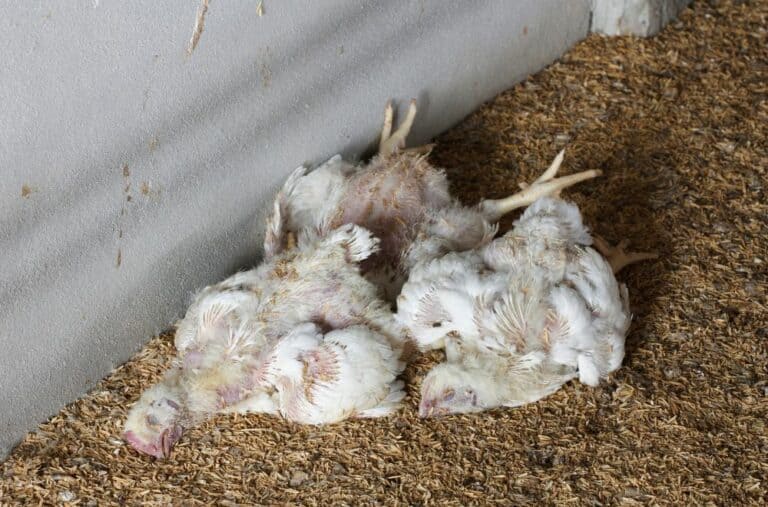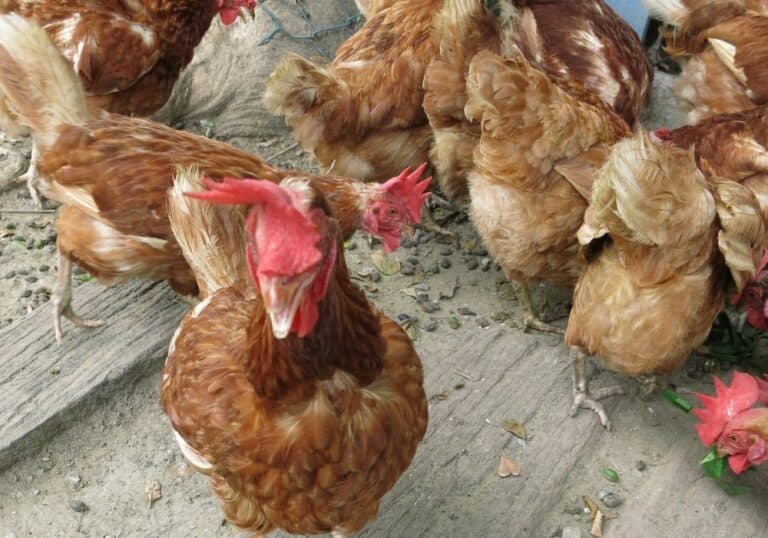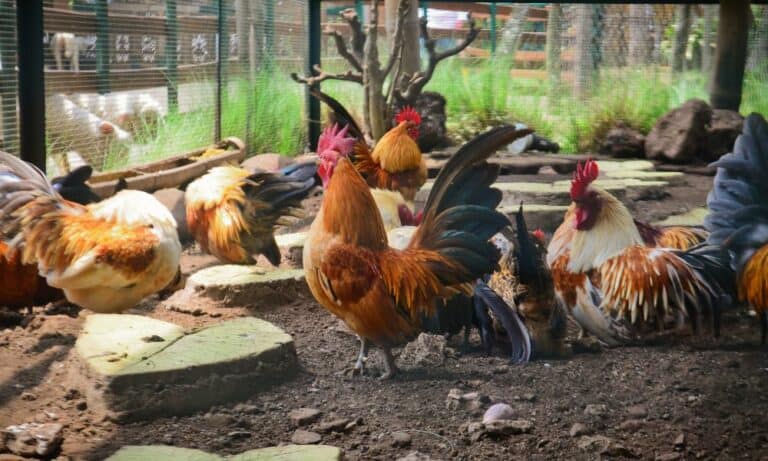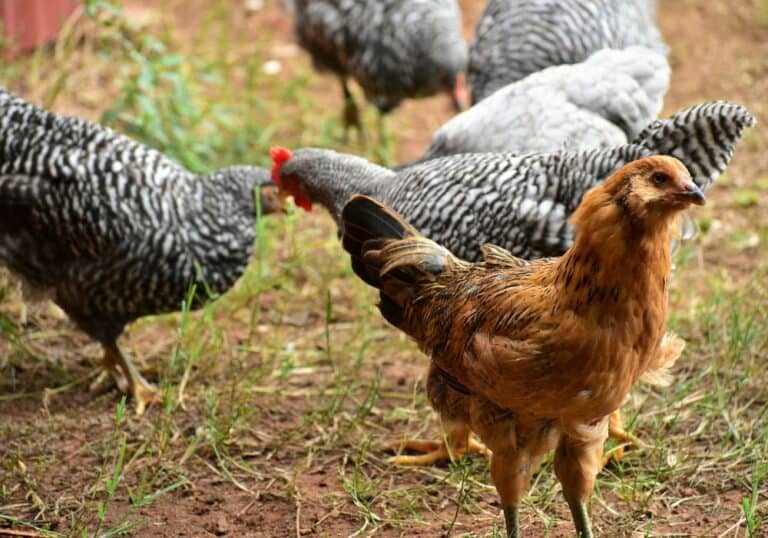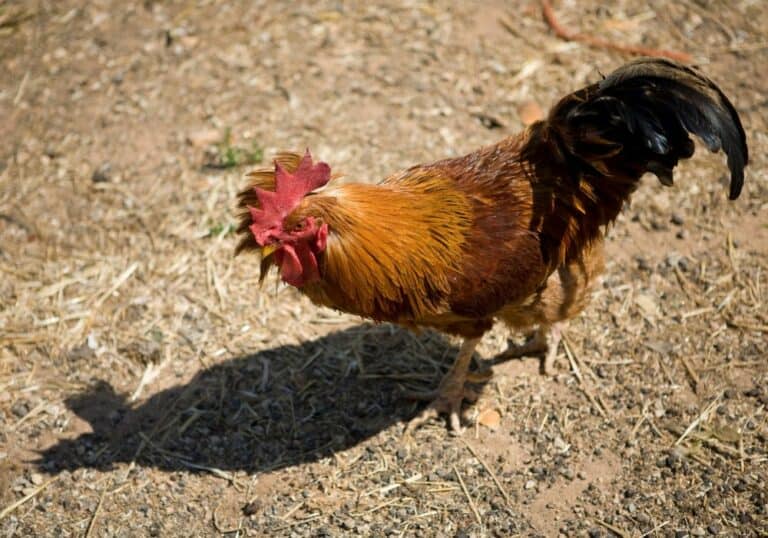Chances are, you have come across a myth or rumor that citrus fruits can kill chickens, right?
And because you want the best for your chickens, you’ve been avoiding giving them citrus. But today, we are here to disapprove of this rumor.
Juicy, colorful, and sweet, citrus fruits bring a burst of sunshine to our taste buds.
But what makes them truly remarkable is not their mind-blowing delicious flavor. Instead, it’s their impressive nutritional composition.
Citrus fruits are nature’s nutritional powerhouse. They are packed with essential minerals, including fiber, calcium, vitamin C, and potassium. For this reason, they offer numerous health benefits to humans and animals, including chickens.
Now, let’s explore whether citrus fruits are safe for your flock or if the rumor is true. Join us on this exciting journey where zesty delights meet your clucking companions.
What Are Citrus Fruits?
Without a doubt! Citrus is among the most popular and tasty fruit in the world. In fact, in the 17th and 18th centuries, this fruit was seen as a symbol of status.
There’s even an American holiday for Citrus called National Citrus Month. But let’s not lose sight of our main topic.
Citrus fruits encompass a variety of fruits, including:
- Lemons
- Oranges
- Limes
- Grapefruits
- Tangerines
- Mandarins
- Pomelo
Over the years, these juicy treats have become a staple in our diets, thanks to their health benefits.
As mentioned earlier, citrus fruits are packed with essential nutrients that improve our overall health.
They are rich in vitamins and minerals, required by your body to function properly. These include vitamin C, vitamin B, magnesium, potassium, and copper.
Citrus fruits also have numerous plant compounds with several health benefits, such as antioxidant and anti-inflammatory effects.
Common plant compounds in citrus include:
- Flavonoids
- Carotenoids
- Essential oils
- Phytonutrients
- Antioxidants
Additionally, these fruits raise citrate levels in urine, lowering your risk of developing kidney stones.
Research also shows that citrus fruits reduce the risk of certain cancers, like lung, breast, and pancreatic cancers.
The antioxidants and flavonoids in these fruits could potentially block genes responsible for cancer from expressing themselves. These compounds could also block the development of new cancer cells and eventually suppress cancers.
Considering these health benefits, some poultry owners can’t help but wonder if chickens can eat these citrusy delights.
Well, our next subtopic might just have the answer you need.
Are Citrus Fruits Bad for Chickens?
Contrary to common beliefs and rumors circulating online, chickens can eat citrus fruits.
Like bugs, seeds, and leafy greens, citrus is safe for chickens. What’s more, citrus fruits are known for their high vitamin and mineral content.
Speaking of vitamins, citrus juices, and peels contains a high amount of vitamin C, which is an essential nutrient for chickens.
Also known as Ascorbic acid, vitamin C is an antioxidant and inflammatory. It helps to increase your bird’s immunity and resistance to illnesses during and regulate stress.
In the long run, it boosts egg production, egg hatch performance, and high chicken productivity.
While chickens can synthesize vitamin C in the body, it doesn’t hurt to supplement their diet with small amounts of this nutrient. And what better way to do this than giving them citrus?
Citrus also contains vitamins A and B, which aid in feathering, reproduction processes, and energy metabolism.
As for minerals, citrus supplies chickens with several minerals, like phosphorous, potassium, and calcium. These mineral support biochemical reactions, bone development, egg formation, and enzyme activation.
Based on this information, it’s clear citrus is beneficial to your flock.
Nutritional Breakdown of Citrus Fruits
| Nutrient | Lemon (content Per serving) | Lime (content Per Serving | Orange (content per serving) | Grape Fruit (content per serving) |
| Protein | 0.6g | 1g | 09g | 1.3g |
| Fat | 0.2g | N/A | NA | N/A |
| Calories | 17 | 20 | 45 | 64 |
| Carbohydrates | 5.4g | 7g | 11g | 16.2g |
| Sugar | 1.5g | 1g | 9g | 14g |
| Vitamin C | 51% | 32% | 85% | 68.8% |
| Fiber | 2g | 2g | 3g | 2.2g |
How Much Citrus Do Chickens Need?
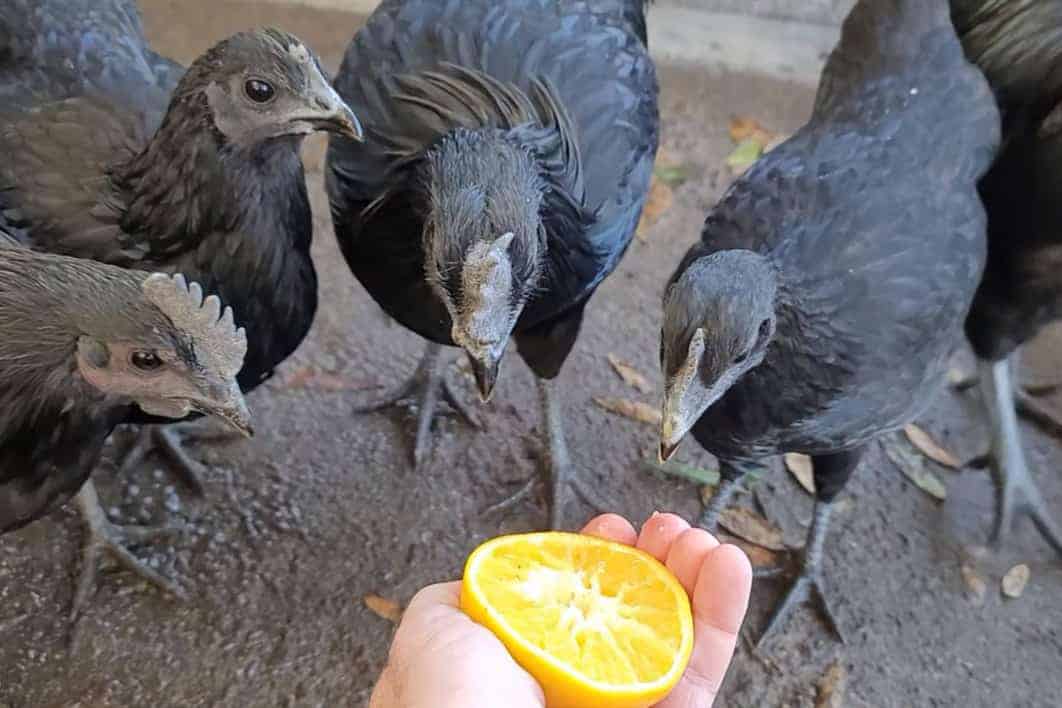
As a rule of thumb with chicken treats, moderation is the key. Excess citrus in chicken feed could have some side effects.
For instance, the high levels of vitamin C in citrus might affect calcium ingestion. Without sufficient calcium in the body, chickens cannot form eggs with healthy eggs shells. Also, they become highly susceptible to joint injuries and bone breakage.
Citrus fruits also contain lots of sugar. In high amounts, this sugar could increase blood glucose levels, leading to obesity and metabolic disorders.
What about acidity?
In small quantities, citric acid promotes development in chickens. It creates a suitable environment for bacteria and enzymes in the chicken’s digestive system. As a result, it improves nutrient absorption and retention.
Furthermore, citric acid improves the absorption of minerals like calcium and phosphorous. It also makes a great additive for chicken feed.
But when consumed in excess, the acid can cause digestive issues, reduce chicken feed efficiency, and lower immune response.
So, what’s the right quantity of citrus for chickens?
Well, experts recommend giving your birds 1 to 1 ½ cuts of citrus fruits. Avoid giving your backyard chickens whole citrus fruits at all costs.
Can Chickens Eat Orange Peels?
Your backyard chicken will not say no to pieces of oranges. Like lemons, lime, and grapefruits, oranges offer chickens vitamin C, folate, and lycopene.
But what of orange peels?
Yes! Your flock will love orange and lemon peels. Orange peels contain pectin, which reduced blood cholesterol levels in birds. They also help reduce triglycerides and glucose concentration.
However, some will only eat a small portion because these peels tend to be tough and rigid. Even worse, some peels might contain pesticides and waxes on the exterior, which could harm your birds’ health.
Let’s not forget the powerful citrus oils found in the peels that might be too strong for chickens to handle.
Nevertheless, some chicken feed manufacturers have found an ingenious way to convert citrus peels, seeds, and pulp into pellets. The pellets maintain the essential nutrients of the original fruits and can be used to feed broilers.
In addition to citrus peels, some chickens might enjoy eating citrus leaves.
Alternatives To Citrus Fruits
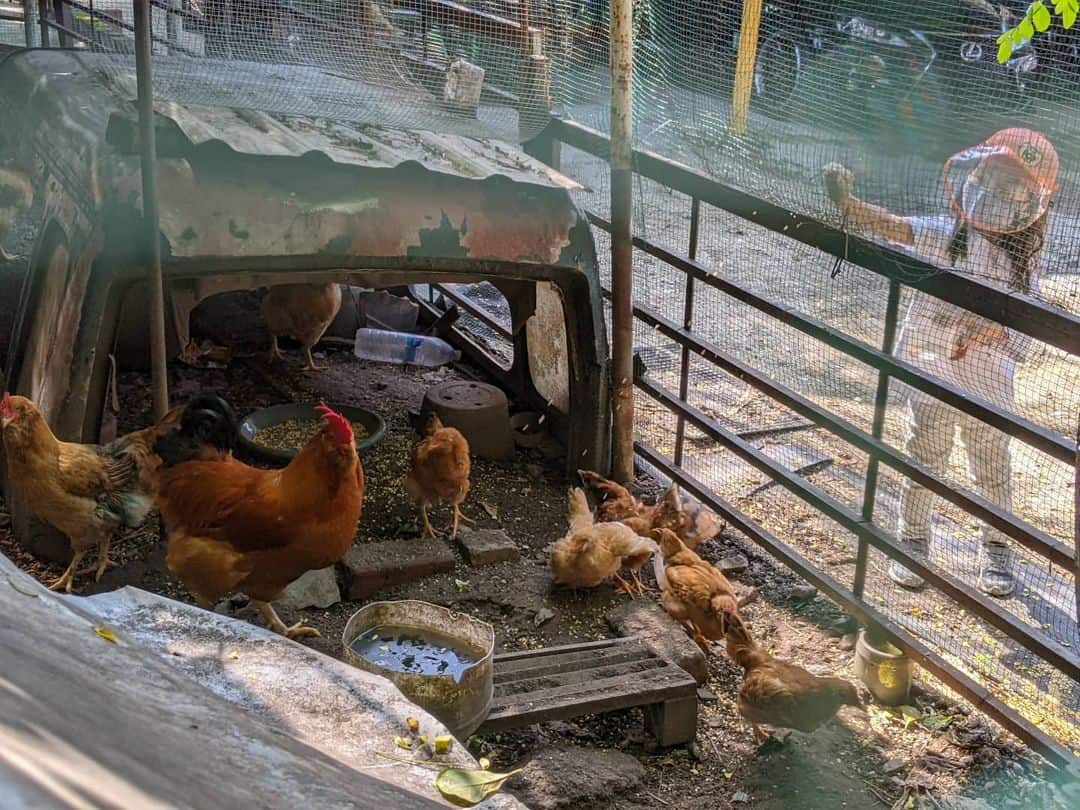
Now that you know chickens can eat citrus fruits, let’s learn about other safe fruits you can give your stock.
Generally, chickens can eat almost every type of fruit, including:
- Melon and Watermelon: These fruits are not only delicious but rich in vitamins and minerals. Your girls will devour the flesh and seed of these fruits. What’s more, the melons will help them stay hydrated, especially in summer.
- Tomatoes: Yes! Tomato is a nutrient-rich fruit and safe for chickens. However, don’t feed your birds leaves and branches from tomato plants, as they contain harmful toxins.
- Apples: Avoid giving chicken apple seeds because they contain cyanide, a toxic compound.
- Strawberries: You might be reluctant to share these sweet treats with your feathered friend, but they are an excellent source of vitamin C, B6, and sugar.
- Pineapples: Your flock will enjoy the sweet pineapple plump. But it helps to chop the pineapple into smaller pieces to avoid choking and for easy digestion.
- Cherries: Cherries also make an excellent treat for chickens. They are nutritious and full of vitamins, including vitamins C, K, E, and A.
- Cucumbers: Chickens love cucumbers, whether raw, unsliced, sliced, or diced. Like melons, cucumbers will keep your birds hydrated and healthy.
Other healthy foods for chickens
- Bananas
- Green Beans
- Carrots
- Peas
- Blueberries
- Plums
- Apricots
- Lettuce
- Kales
- Sunflower seeds
- Corn
- Eggplants
- Orange juice
- Apricots
- Oats
Foods Chickens Should Not Eat
Chickens have a remarkable digestive system that can process a range of foods. However, it is crucial to understand that some foods are not ideal for your hens and roosters. Certain foods can cause your chickens discomfort and even affect their health and well-being.
Here’s a list of food chickens should not eat.
- Avocado skins and pits: They contain Persin, a toxic substance that can lead to respiratory distress and heart issues.
- Rhubarb: Contains oxalic acid, which causes tremors and interferes with calcium absorption in chickens. Rhubarb leaves also have a high concentration of anthraquinones that have a laxative effect.
- Uncooked or dried beans: Raw beans have high levels of phytohemagglutinin, which interfere with digestion in birds.
- Chocolate and Caffeine: Chocolate contains theobromine, which causes seizures and even death. Caffeine prevents the absorption of calcium in the chicken’s body.
Additionally, chickens are sensitive to excess salt and moldy or spoiled foods.
Closing Remarks
As a poultry keeper, it’s your responsibility to ensure your feathered companions eat safe and nutritious food. That means questioning the safety of certain foods, such as citrus fruits.
But from this piece, it’s clear that the rumor about citrus fruits being fatal to chickens is unfounded. Research shows that these fruits are healthy for chickens in moderation.
Citrus fruits contain high amounts of antioxidants, flavonoids, vitamins, carbohydrates, and minerals. These compounds and nutrients help to boost the chicken’s immune system and improve its overall well-being.
So, the next time you are enjoying a fresh lemon or juicy orange, consider sharing the treat with your backyard chickens.

